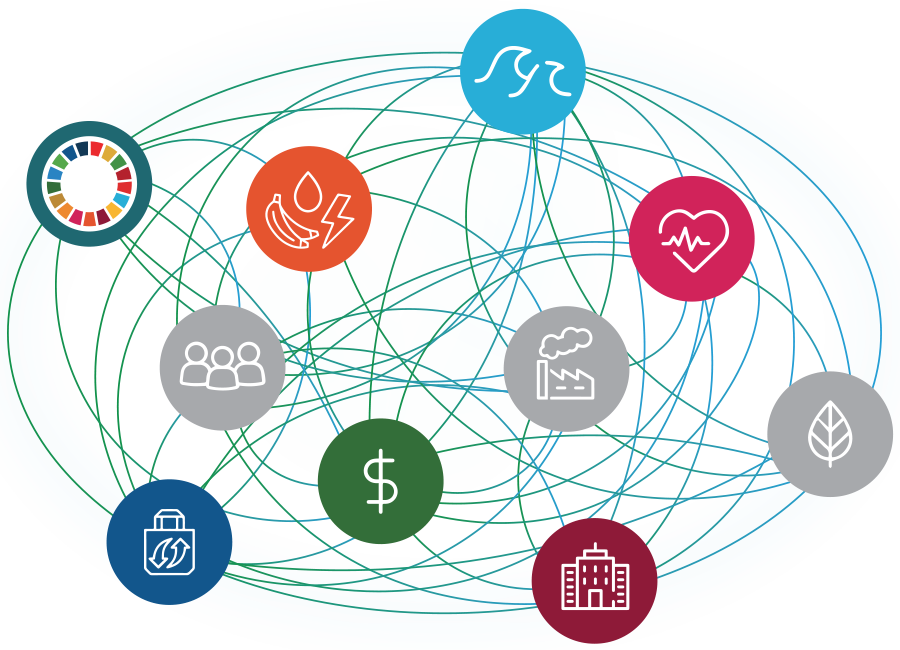Our Knowledge-Action Networks (KANs) bring together innovators from academia, policy, business, civil society and more to address the world’s most pressing sustainability challenges.
KANs are collaborative frameworks that facilitate highly integrative sustainability research on some of today’s most pressing global environmental challenges. Their aim is to generate the multifaceted knowledge needed to inform solutions for complex societal issues.
Get Involved
Please visit an individual Knowledge-Action Network page to learn how to get involved.
The objectives of the Knowledge-Action Networks are to:
- identify and respond to society’s needs for scientific knowledge to successfully undertake the transformation to sustainability
- generate integrated knowledge that is relevant to decision-makers
- develop and cultivate research that is solution-driven, inter- and trans-disciplinary
- add value to research that is or has been carried out already
Contributions to Knowledge-Action Networks are on a voluntary basis through members, projects or groups with the appropriate expertise and an interest in putting their expertise into the broader context of sustainability research addressed by Future Earth.
Current Knowledge-Action Networks
What is the scope of the Knowledge-Action Networks?
Knowledge-Action Networks foster collaboration across disciplinary backgrounds on some of today’s most pressing global environmental challenges. Knowledge-Action Networks focus on key societal challenges as outlined in the Future Earth 2025 Vision, as well as cross-cutting topics.
Why has Future Earth decided to build Knowledge-Action Networks?
The Future Earth 2025 Vision identifies eight major societal challenges to sustainability. It also emphasises how greater interactions among disciplines and between research and societal partners, in both public and private sectors and civil society, can improve the role of research to identify solutions for societal challenges.
Knowledge-Action Networks aim to facilitate this by creating frameworks for applying these approaches both to research and to related activities that encourage engagement between diverse partners in addressing these challenges. These dynamic networks will be innovative: aiming to identify and fill knowledge gaps that are defined collaboratively by broad communities of experts within and outside of academia.
Consistent with Future Earth’s slogan of “Research. Innovation, Sustainability.”, the main function of Knowledge-Action Networks is to generate high-quality actionable scientific knowledge through the integration of research and the involvement of societal partners, following the Engagement Guidelines of Future Earth.
How do Knowledge-Action Networks work?
Knowledge-Action Networks aim to generate knowledge by pulling from many areas of both academia and society. They involve fundamental research, integration of natural and social sciences and humanities, co-designed research questions with users, co-produced outcomes, and broader engagement activities through state-of-the-art communications, dialogues and involvement at policy interfaces. The co-design process ensures that the Knowledge-Action Networks deliver the knowledge that society needs.
